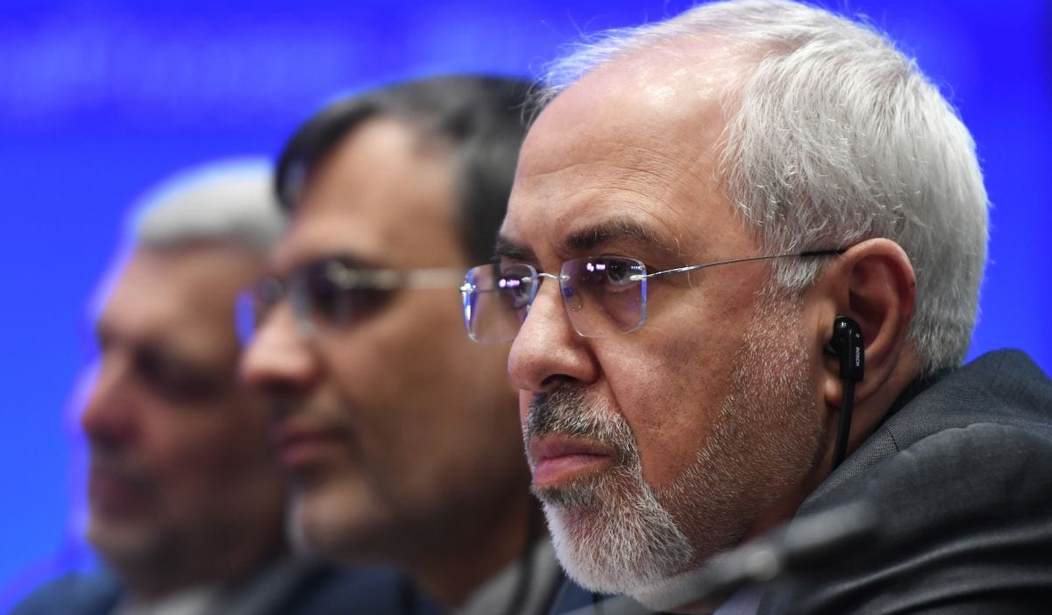Iranian Foreign Minister Javad Zarif said at the UN that if the U.S. pulls out of the nuclear deal, Iran could “restart” its nuclear program.
Speaking to reporters in New York, Mohammad Javad Zarif said the United States has failed to implement its side of the nuclear pact between Iran and six major powers. Under the deal, which went into force in January 2016 when President Barack Obama was still in office, Iran agreed to put limits on parts of its nuclear program in exchange for the termination of all nuclear-related sanctions.
“That’s a very dangerous message to send to people of Iran, but also to the people of the world — that you should never come to an agreement with the United States because at the end of the day, the operating principle of the United States is ‘what’s mine is mine, what’s yours is negotiable,'” he said. “The situation is creating an impression globally that agreements don’t matter.”
Zarif, in town to attend meetings at the United Nations, said if Washington leaves the deal, Iran has many options to consider, including complaining through a dispute mechanism set up in the agreement, simply leaving the deal and restarting its nuclear activities, or more “drastic measures,” which he declined to specify.
“We will make a decision based on our national security interests when the times comes,” he said. “But whatever that decision will be, it won’t be very pleasant to the United States.”
There’s nothing new in this threat. Iran has threatened to resume enriching uranium every time the U.S. does something it doesn’t like, which is often.
But if Iran were to resume uranium enrichment, it would force its new business partners, the European powers, to slap sanctions on them. And that’s something Iran can’t let happen.
The demonstrations that began last December in cities throughout Iran still reverberate. Dozens of protesters arrested then are still awaiting trial, and others have already received heavy sentences.
That same month, workers at the Haft Tapeh sugar plant in Khuzestan Province – where some 5,500 people are employed – went on strike because they hadn’t been paid in months. Some even committed suicide because they couldn’t pay their debts.
This was not an isolated case. Strikes have occurred at dozens of factories, especially those that were privatized and sold to businessmen. The results of privatization haven’t been encouraging.
At the end of last year, the World Bank predicted that Iran’s economy would grow by 4 percent in 2018 and 2019 – about half the government’s desired pace. Industrial growth hit 18 percent during the second half of 2017, but has been just 4 percent so far this year. Production has flatlined. And the economic reforms Rohani promised to include in this year’s budget disappeared almost completely due to protests over the planned increase in prices and cuts in subsidies.
With the economy in shambles, it wouldn’t take much to cause it to implode. That’s why even modest sanctions from the U.S. and Europe are something the Iranians simply can’t afford.
Add to their economic woes is the real possibility of war with Israel. Recent events have shown that the Israelis are absolutely intent on denying the Iranians a base in Syria to launch attacks against Israel. Israeli jets have hit Iranian targets in Syria several times in recent months, leading to speculation that the Israelis might escalate their attacks if Iran doesn’t cease their efforts in Syria.
But Iran can’t afford a war with Israel any more than they can afford mild sanctions imposed for restarting its nuclear program:
An outbreak of hostilities between Iran and Israel – something New York Times columnist Thomas Friedman and Israeli officials themselves have warned of – will apparently have to wait until at least mid-May.
Paradoxically, the battle between Washington and European capitals has seemingly contributed greatly to Iran’s restraint in the face of airstrikes on Syria attributed to Israel. Iran believes it can’t afford to start a new Mideast war, because that would play into Trump’s and Israel’s hands by releasing the European brakes.
The combination of the nuclear agreement and the economic crisis has backed Iran into a corner in which it is not only barred from developing its nuclear program, but also can’t risk a conventional war.
All this points to the FM’s words as little more than empty bluff. Trump will call them on it and raise the stakes by demanding Iran stop its missile testing. The fact is, the Trump administration has Iran over a barrel and there’s nothing they can do.










Join the conversation as a VIP Member